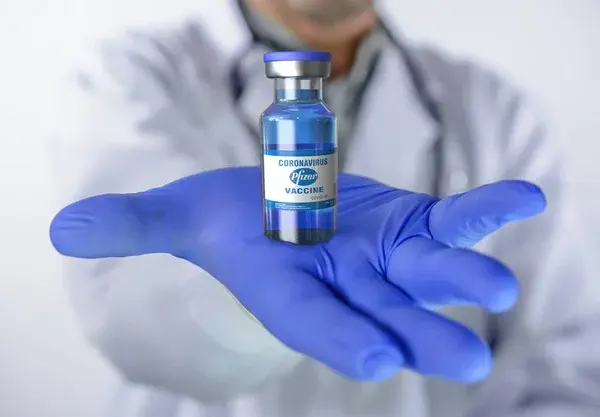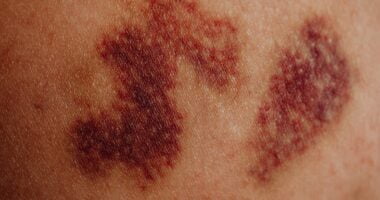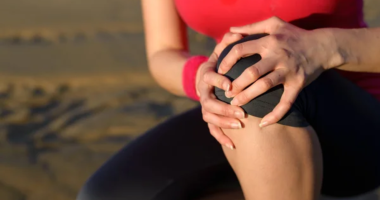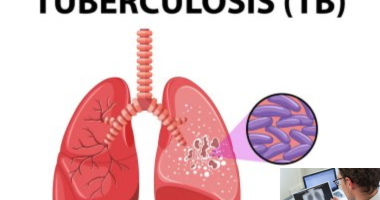Intentional efforts to prevent Coronavirus is very important for everyone. However, older adults and those with underlying medical conditions who are at higher risk need to protect themselves even more vigilant
Coronavirus COVID-19 is a new type of Coronavirus that started in Wuhan China in late 2019. It is said to be caused by a member of the Coronavirus family that has never been encountered before.
Similar to other Coronaviruses, COVID-19 is believed to have come from animals before transmitting to humans through close contact. It can cause mild to moderate upper-respiratory infections, like the common cold.
With coronavirus, a person can have Middle East Respiratory Syndrome (MERS-CoV) and Severe Acute Respiratory Syndrome (SARS-CoV) as well.
Coronaviruses can also be deadly. According to the CDC, its symptoms range from coughs, and fever to breathing difficulties. In severe cases, COVID-19 can cause bronchitis, diarrhea, pneumonia, organ failure, and even death. Therefore protection and prevention are the keys to staying safe.
How to prevent the Coronavirus 2019 infections
There are several COVID-19 vaccines available that can help prevent symptoms of infection with the SARS-CoV-2 virus that causes COVID-19:
The COVID-19 vaccines authorized for use by the WHO and other regulatory bodies, including inactivated protein-based, viral vector, and mRNA vaccines, have been shown to be effective at preventing severe disease, hospitalization, and death from COVID-19 infection.
A published Plos One Journal revealed that full vaccination helps prevent COVID-19 symptoms like cough, sputum, fever, rhinorrhea, and myalgia compared to unvaccinated individuals. The vaccines significantly reduce but don’t eliminate the risk of infection.
People who get COVID-19 after being vaccinated are much more likely to only experience mild symptoms compared to unvaccinated individuals. Vaccination provides strong protection against severe illness.
Vaccine effectiveness in preventing infection has decreased somewhat over time due to waning immunity and new variants, but the vaccines still provide substantial protection against severe disease and death.
WHO recommends vaccination for all eligible individuals, including during pregnancy and while breastfeeding, as the benefits outweigh the risks. Vaccination is particularly important for those at higher risk of severe COVID-19.
Additionally, to protect against serious COVID-19 illness, the CDC recommends the updated COVID-19 vaccines (Pfizer-BioNTech, Moderna, or Novavax) from 2023 to 2024. To prevent serious illness caused by COVID-19, individuals aged 5 and up should receive one dose of an updated vaccine.
The Covid-19 prevention steps recommended before vaccines were released…
- Drink plenty of water every day.
- Avoid close contact with sick people.
- Stay away from crowded gatherings and events.
- Cover your mouth and nose with your elbow, towel or tissue when coughing or sneezing.
- Avoid touching your nose, eyes, and mouth with unclean hands.
- Sleep for at least 6 hours at night and 60 minutes during the day.
- Take medications as soon as you notice symptoms and don’t let the condition worsen.
- Personalize your items such as dishes, glasses, bedding, and other household items.
- Clean and disinfect hard surfaces that you frequently touch.
- Do not go to work or public areas if you feel sick and speak to your doctor immediately.
- Avoid eating raw or undercooked meat or animal organs.
- Wash your hands regularly with soap and water or use alcohol-based hand sanitizer.
- Maintain a distance of at least 1 meter (3 feet) from people who are coughing or sneezing.
- Avoid contact with live animals around your living area, markets or places that have recently had new coronavirus cases.
FAQs
Are there treatments for Coronavirus (COVID-19) infections?
There are several treatment options for COVID-19 infections:
Antiviral medications include nirmatrelvir plus ritonavir (Paxlovid), which has been approved by the FDA to treat COVID-19 in certain adults. Remdesivir (Veklury) is FDA-approved for treating COVID-19 in both non-hospitalized and hospitalized patients. Molnupiravir (Lagevrio) – FDA-approved for emergency use to treat COVID-19 in certain adults.
Monoclonal Antibody Therapy: Casirivimab and imdevimab are recommended by the World Health Organization for non-severe COVID-19 patients at risk of hospitalization, as well as severe/critical patients who lack antibodies.
Immunomodulators: Tocilizumab and sarilumab (IL-6 receptor blockers) are recommended by WHO for patients with severe or critical COVID-19. The FDA has approved baricitinib (Olumiant) to treat COVID-19 in certain hospitalized adults. Tocilizumab (Actemra) is FDA-approved for treating COVID-19 in certain hospitalized adults.
Anticoagulants: Clinical trials are underway to investigate therapeutic and prophylactic anticoagulation for COVID-19-associated coagulopathy.
The treatments are generally recommended to be used in combination with standard supportive care, such as oxygen therapy. Eligibility and access to these treatments depend on factors like symptom severity, risk factors, and location. Vaccination remains the best defense against COVID-19.
How do Coronavirus infections spread?
COVID-19 usually spreads from an infected person to others through coughing, sneezing, touching or shaking hands, and touching an object or surface infected with the virus. Fecal-oral transmission may be possible if an infected person doesn’t wash their hands after using the bathroom and puts the unwashed hands into their mouth, nose, or eyes. Additionally, transmission from infected animals to humans is possible but not considered a common way the virus spread
What are my chances of catching Coronavirus (COVID-19)?
Your chances of catching COVID-19 depend on where you live and countries or places you recently visited. If you live in areas where the virus is present, your chances are high but if not, you are less likely to get infected. Since the spread is still on and no permanent cure has been found yet, the best thing is to prevent Coronavirus by protecting yourself. Always read and update yourself on the latest around Coronavirus and avoid traveling to high-risk areas.
Can I catch the coronavirus by eating food prepared by others?
The risk of contracting COVID-19 through food or food packaging is considered extremely low. Coronaviruses, such as SARS-CoV-2, cannot multiply in food; they require a living animal or human host to survive and reproduce. While it is theoretically possible for someone infected with COVID-19 to contaminate food through coughing, sneezing, or poor hand hygiene, this is not thought to be a common mode of virus transmission. The virus can be killed with standard cooking temperatures and thorough handwashing after handling food packaging. Disinfecting food packaging is unnecessary as long as food preparers practice good hygiene habits such as frequent handwashing.
Who is at risk of catching Coronavirus (COVID-19)?
Though WHO is still on progressive research to determine how COVID-19 affects people, certain groups have however been named to be at risk of developing severe illness. The list includes older people with pre-existing medical conditions like high blood pressure, heart disease, and diabetes. As a result of their condition, their immune system may become weaker, making them porous to the virus. Keep in mind that the risk of severe illness and death from COVID-19 increases significantly with age, especially for those 65 and older.
Other persons that may be at risk are people with underlying medical conditions, certain racial and ethnic minority groups, pregnant women, tourists and travelers, and daycare, boarding homes, or college staff and students, those with weakened immune systems from conditions or medications, children, especially infants and toddlers, people living or working in high-risk settings such as long-term care facilities, homeless shelters, prisons, and jobs with frequent public interaction. Those who keep close contact with coronavirus-infected persons are not exempted from the list. In a nutshell, factors like age, sex, general health, and occupation may cause one to have Coronavirus COVID-19.
Can I use antibiotics to prevent or treat the Coronavirus COVID-19?
Using antibiotics to prevent Coronavirus COVID-19 is a waste of effort and drugs. Antibiotics were never designed to work for viruses or viral infections, but rather for bacterial infections. As earlier mentioned COVID-19 is caused by a virus from animals, so antibiotics can not work for it. If you have a need to use antibiotics, consult your doctor and follow the instructions given.
Note: overuse of antibiotics, especially when not needed, can accelerate the development of antibiotic resistance, which is a major global health threat
Should I wear a mask to protect myself from Coronavirus COVID-19?
If you are alone, you can allow your nose to enjoy some freedom but while going out or with people, wearing a mask can help prevent the spread of COVID-19. Masks can trap respiratory droplets containing the virus, reducing transmission from infected people.
Masks work best when everyone wears them, as they help stop the virus at its source before it spreads through the atmosphere. Masks offer protection to both the wearer and those around them. To prevent COVID-19 transmission, the CDC and WHO recommend wearing masks in crowded, enclosed, or poorly ventilated indoor spaces.
Well-fitting N95, KN95 or KF94 masks provide the best protection against COVID-19. Surgical/medical masks and high-quality cloth masks with multiple layers also offer good protection. Masks should cover your nose and mouth snugly without gaps. Proper mask-wearing and hygiene is important for effectiveness.
Note: The use of a nose/medical mask is very important for health workers including those whose duty is to take care of medical facilities.
Tips on how to use and dispose of used medical mask
- Do not use an old medical mask
- Clean your hands with 60% alcohol-based hand rub or wash with soap and water before touching a new medical mask.
- Inspect a new mask for holes or tears before using it.
- Confirm the side that is top or bottom to avoid wearing it the wrong way
- Ensure the proper side of the mask faces outwards (the coloured side).
- Place the mask on your face. Pinch the metal strip or stiff edge of the mask so it molds to the shape of your nose.
- Ensure the mask bottom covers your mouth and chin.
- After use, take off the mask gently from behind the ears by removing the elastic loops and making sure the mask does not touch your face and clothes.
- Throw away the mask in a closed bin immediately after you are done using it.
- Repeat washing of hands for about 20 seconds after discarding the used medical mask. Use hand sanitizer if soap and water are not available
- Many of those initially infected either worked or frequently shopped in the Huanan seafood wholesale market in the center of the Chinese city.
Should I wear a mask if I am immunocompromised?
Talk to your doctor first before wearing a mask to protect against COVID-19 if you are immunocompromised or have a weak immune system. Make sure to follow the advice given by your doctor especially if you are receiving certain treatments or you have illnesses you are combating.
Can the coronavirus live on soft surfaces?
Transmission through soft surfaces may just be slim. as there is limited research to confirm Coronavirus, SARS-CoV-2 can live, survive, or last long on soft surfaces like carpets, clothes, fabric and textiles, and other soft items.
One study by Elsevier discovered that SARS-CoV-2 was more stable on smooth surfaces like plastic and stainless steel than on porous materials like cloth and paper. The virus tends to survive better on hard, non-porous surfaces. The virus was found to be detectable on the outer layer of a surgical mask for up to 7 days, implying that it could survive longer on some soft fabrics. However, the number of viable viruses decreased dramatically over time.
According to WHO information, COVID-19 can live and survive on hard surfaces such as doorknobs, tap handles, etc. for hours and probably days.
How long does the COVID-19 virus survive on the surface?
Similar to other Coronaviruses, COVID-19 virus infection can live or survive on the surface for hours in most cases days. The survival period depends on the type of surface, and the temperature or humidity of the environment that is hosting the virus.
The best thing to do in situations like this is to always clean and disinfect surfaces, especially in your living space or where your hands frequently touch. Remember to clean your hands with 60% alcohol-based hand rub or water and soap once you are done cleaning.
How deadly is this coronavirus COVID-19?
Coronavirus can lead to death especially if your case is severe or if you are suffering from illnesses such as acute respiratory distress syndrome (ARDS) and diabetes. As a result of the sickness, the immune system may become weak and thus expose the body to Coronavirus infections. Read more about: |Diseases
Extra resources
- https://www.health.harvard.edu/blog/as-coronavirus-spreads-many-questions-and-some-answers-2020022719004
- https://www.who.int/news-room/q-a-detail/q-a-coronaviruses
- https://www.who.int/news-room/questions-and-answers/item/coronavirus-disease-covid-19-food-safety-for-consumers
- https://www.who.int/news-room/questions-and-answers/item/coronavirus-disease-covid-19-how-is-it-transmitted
- https://www.cdc.gov/coronavirus/2019-ncov/prevent-getting-sick/how-covid-spreads.html
- https://www.ncbi.nlm.nih.gov/pmc/articles/PMC7461745/
- https://www.fda.gov/consumers/consumer-updates/know-your-treatment-options-covid-19
- https://www.nhs.uk/conditions/covid-19/treatments-for-covid-19/
- https://www.ncbi.nlm.nih.gov/pmc/articles/PMC7345440/
- https://emedicine.medscape.com/article/2500114-overview









